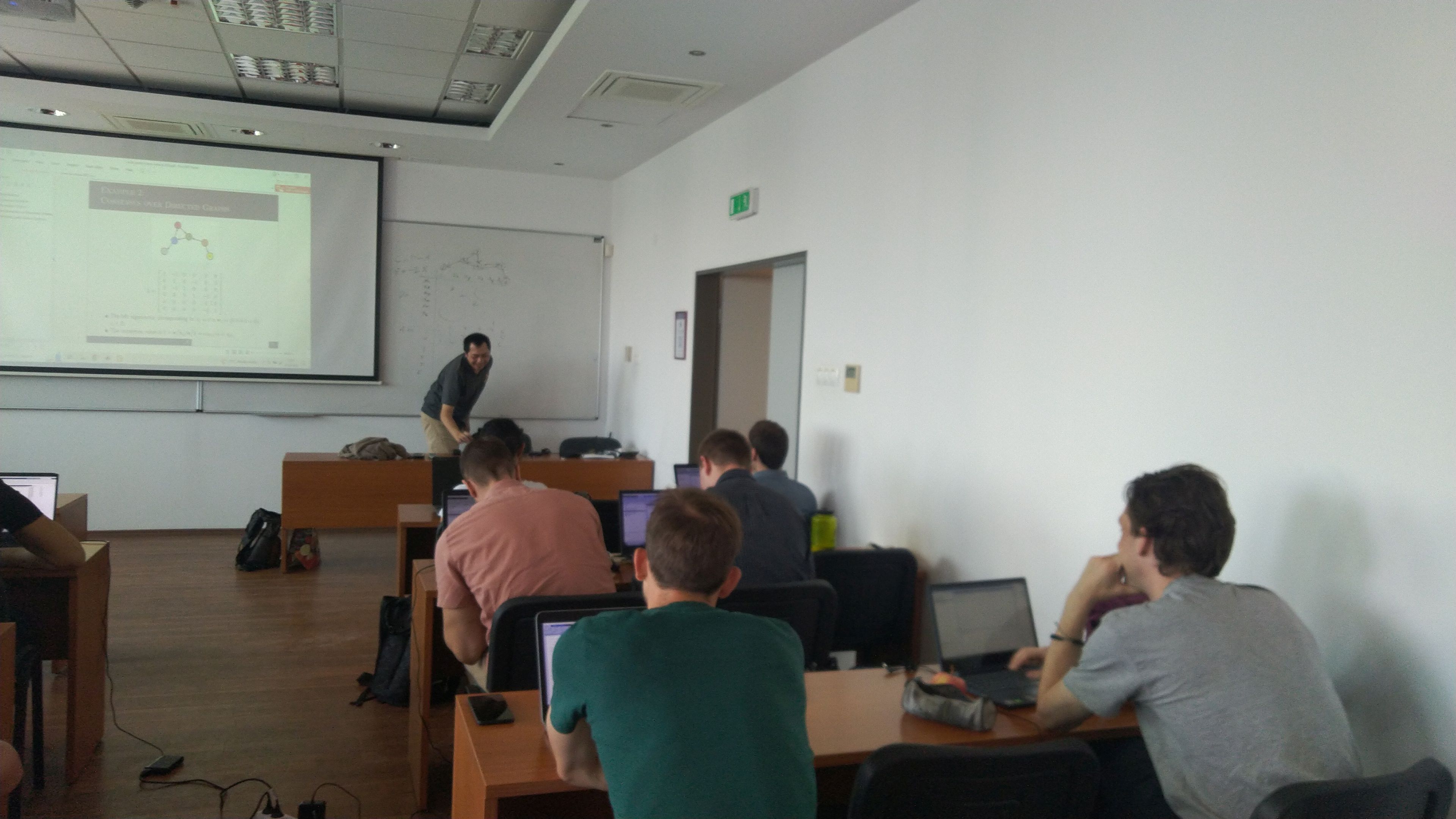The aim of this condensed 4-day PhD course is to introduce basic notions in nonlinear systems and control to interested students.
The studied topics will cover the classical theory of input-affine systems (analysis of basic properties such as reachability, observability, stability; linearization-based controller design), passivity, Hamiltonian system representation, model based predictive control, as well as the control of compartmental systems. For each day, 4x45 mins of theoretical lectures and tutorials are planned.
Date: August 28 - September 1, 2023
The course includes the following topics:
- Introduction: mathematical models of dynamical systems, linear and nonlinear models, control goals and constraints, summary of LTI systems
- Mathematical tools: Vector fields, diffeomorphisms, tangent vectors, Lie derivative, Lie product, distributions, co-distributions
- Most important special nonlinear system classes: positive systems, polynomial systems, QP-systems, CRNs, Hamiltonian systems.
- The underlying physical picture behind these classes
- Summary of the theory of nonlinear autonomous systems: continuity, existence and unicity of solutions, equilibrium points, stability
- Nonlinear control systems in ODE-form, steady states, linearization around steady states/solutions
- Analysis of input-affine systems: reachability and controllability
- Classical control of input-affine systems: exact linearization, zero dynamics, input-output linearization (SISO and MIMO cases)
- Dissipative and passive systems: storage functions, dissipativity, passivity, Lq-gain. Control Lyapunov functions, passivation, feedback equivalence, minimum-phase nonlinear systems.
- Hamiltonian systems: system interconnections and Hamiltonian functions, control by feedback and interconnection, generalized Hamiltonian systems
- Model-based predictive controllers and their application for traffic systems.
- Analysis and control of compartmental systems.


